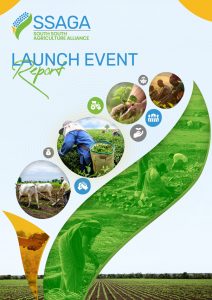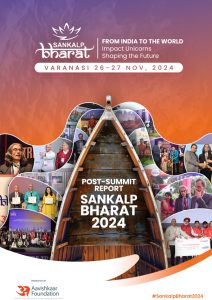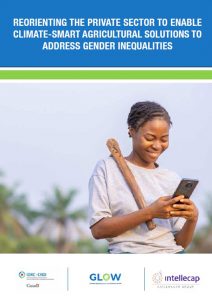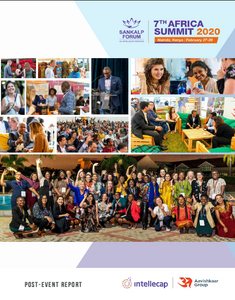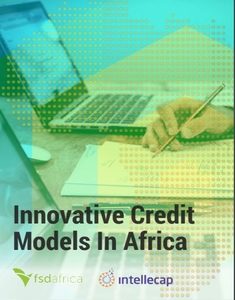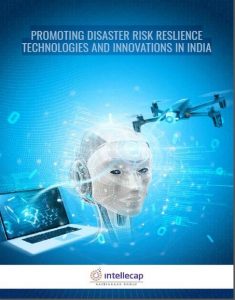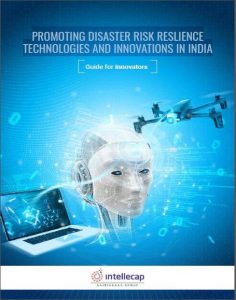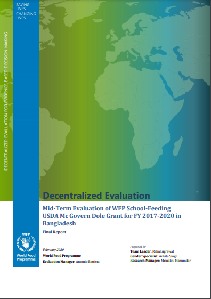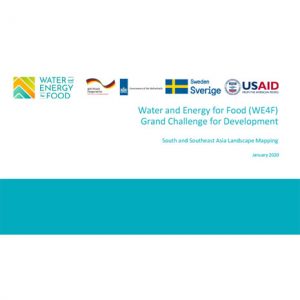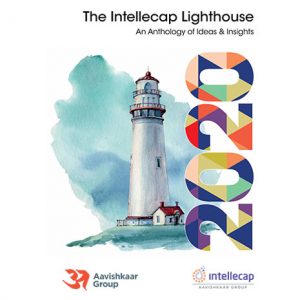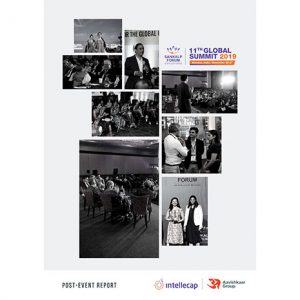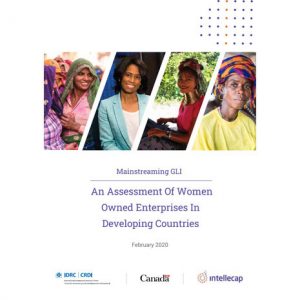TRENDING
-
SSAGA – Benefitting small-scale farmers by fostering innovations and collaboration across the Global South
Published: March, 2025 -
Sankalp Bharat 2024-Post Summit Report
Published: March, 2025 -
Reorienting The Private Sector To Enable Climate-smart Agricultural Solutions To Address Gender Inequalities
Published: February, 2025
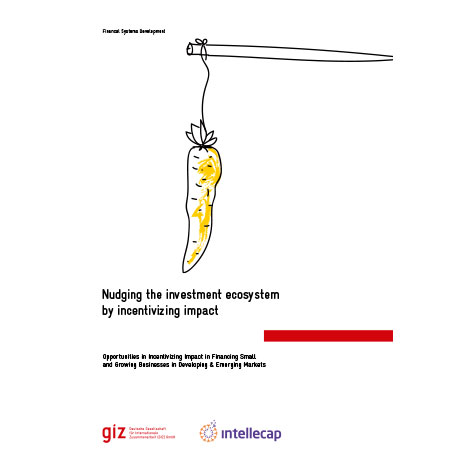
Nudging The Investment Ecosystem By Incentivizing Impact
PUBLISHED: June, 2018
Opportunities in Incentivizing Impact in Financing Small and Growing Businesses in Developing & Emerging Markets
This paper is a summary of fresh ideas on how to channel more capital into impact investing and incentivize impact creation. Building on insights generated by experts at the BMZ hosted conference Financing Global Development – Leveraging Impact Investing for the SDGs, the paper furthers the conversation on Impact Measurement and Management, IMM 2.0, through brainstorming practical ideas and viewpoints in the impact investing value chain: those who provide capital, those who manage it, and those who receive it. This included close to 50 stakeholders, including fund managers, DFIs, intermediaries, entrepreneurs, governments, CSOs and others.
The discussion, conducted in the form of a ‘design lab’ by Deutsche Gesellschaft für Internationale Zusammenarbeit (GIZ) GmbH, Intellecap, and the Swiss Agency for Development and Cooperation (SDC), aims to start a conversation on how to maximize impact by channeling capital into small and growing businesses (SGBs) as a way to expedite achievement of SDGs (Sustainable Development Goals). During the session, industry leaders like FMO, Vox Capital, and Roots of Impact had shared case studies of good practices in incentivizing impact along the investment chain. This formed the basis of brainstorming on development of new ideas on innovative instruments that could nudge the ecosystem towards more actively pursuing and scaling impact.
The result is an analysis of the barriers in the impact investment value chain highlighted during the stakeholder conversations, and key insights on how to overcome them (for example, the need for transparency, standardization, leadership, etc.). In addition, the workshop collated a list of potential ‘wild ideas’ to like impact currency, impact rewards, impact index, online market places for impact auctioning, and a give-back distribution impact support system, designed to incentivize increased levels of investment along the value chain. The practical approaches suggested by stakeholders fit well with the existing impact measurement and monitoring frameworks like GIIN’s IRIS and Intellecap’s PRISM and hold the potential to guide impact capital more efficiently by leveraging good practices.

The Financial Lives of Government Employees – Potential of Digital Finance in Sierra Leone
PUBLISHED: July, 2018
This report documents findings from research on the financial lives of government employees in Sierra Leone, commissioned by the Government to People Payments Project – Building Digital Ecosystem funded by USAID. Intellecap supported UNCDF, Government of Sierra Leone and Bank of Sierra Leone for conducting the research.
There are 80,000 government employees in Sierra Leone who receive salaries digitally in their bank accounts. Insights about their financial lives can help build a viable business case for DFS to expand access to a wide range of financial services for underserved communities in Sierra Leone. Such insights can inform strategies and use cases that the UNCDF and the Government of Sierra Leone can develop to promote DFS in the country. The National Strategy for Financial Inclusion 2017 – 2020 also refers to the need to identify and digitize use cases that will lead to habitual usage, and achieve Sierra Leone’s commitments to the ‘Better Than Cash Alliance’.
Recognizing the need and opportunity, UNCDF supported the Financial Lives Survey of government employees who receive their salaries digitally in Sierra Leone. Intellecap designed the survey to understand how government employees utilize salaries transferred into their bank accounts, their awareness of and access to DFS, avenues to use them and their perceptions about financial services and digital financial transactions. This report contains insights from the survey about potential customers of DFS and recommendations on use cases that could be piloted as an initial step to improve DFS adoption in Sierra Leone.
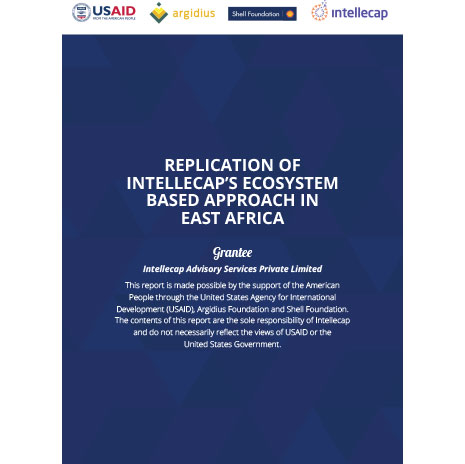
Replication of Intellecap’s Ecosystem Based Approach in East Africa
PUBLISHED: July, 2018
Intellecap has sought to replicate its ecosystem-based approach to East Africa by bringing
together capital, knowledge and networks to support SGBs at two levels: (i) provide direct support
to SGBs in the form of acceleration, fund-raising, technical assistance, innovation transfer, and
market linkages, and (ii) discover and engage critical ecosystem players such as corporations
(both local and international), accelerators, other development sector players in supporting SGBs.
In the three-year period since the launch of our initiative to replicate our ecosystem-based
approach for accelerating entrepreneurship support to SGBs in East Africa, we have received
generous support not only from our funders, but also from a number of local and international stakeholders such as development institutions, private sector entities, and industry associations.
Over the last year, we have replicated our advocacy platform (Sankalp), angel investment network
(I3N) advisory services (consulting & investment banking), virtual incubation platform
(StartupWave) and impact measurement platform (PRISM) as envisaged at the beginning of our
programmatic support. The development and adaptation of StartupWave for East Africa has
resulted in over 450 sign-ups for our early stage enterprise support activities and partnerships with
over 30 incubators / accelerators. Similarly, PRISM, our impact measurement platform, has
garnered interest from a wide variety of players to measure the impact of their programs.
All Publications
-
Sankalp Africa Summit 2020- Report
PUBLISHED: September, 2020Tags: Sankalp Forum,Africa, Sankalp Africa Summit 2020READ MORE -
Innovative credit models in Africa – An FSD Africa and Intellecap Publication
PUBLISHED: July, 2020READ MORE -
Promoting Disaster Risk Reslience Technologies And Innovations In India_All Stakeholders
PUBLISHED: June, 2020READ MORE -
Promoting Disaster Risk Reslience Technologies And Innovations In India_ Guide for Innovators
PUBLISHED: June, 2020READ MORE -
South and Southeast Asia Investment Landscape Mapping | Water and Energy for Food (WE4F) Grand Challenge for Development
PUBLISHED: April, 2020READ MORE -
Mainstreaming GLI An Assessment of Women Owned Enterprises in Developing Countries
PUBLISHED: March, 2020READ MORE
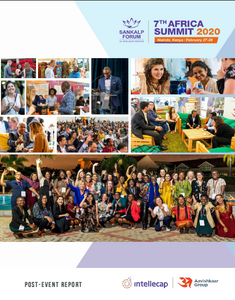
Sankalp Africa Summit 2020- Report
PUBLISHED: September, 2020
The report of the Sankalp Africa Summit 2020 is all about our February 2020 summit where we convened 1268 delegates from nearly 40 countries to discuss, deliberate, and collaborate on the role of entrepreneurship in achieving the Sustainable Development Goals.
Convened in Nairobi, Kenya, the Sankalp Africa Summit 2020 celebrated some of the most promising enterprises from across the continent.
Over the two days of the Sankalp Africa Summit 2020, we hosted 50+ sessions which included main plenaries, impact lounges, panel discussions, debates, design hacks, interactive workshops, masterclasses, deal rooms, member meetings, film screenings, and a dance workshop followed by an exclusive dinner for women leaders. Sankalp and its partners curated sessions around sectors such as Agriculture, Livelihoods, Healthcare, Financial Inclusion, Clean Energy and Smart Climate, the Circular Economy, Water and Sanitation, and Frontier Economies, as well as a focus on crosscutting themes such as Technology for Good, Talent, and Gender.
Aligned to the Summit’s theme, ‘Collaborate 2030: Scaling Entrepreneurship for the Global Goals,’ the main plenary session sought to take on a holistic self-audit view on whether the Sustainable Development Goals really were achievable in the next 10 years and could create meaningful impact for those living at the bottom of the pyramid, or if they were merely symbolic to further international political agendas. The discussion was also around what more we all need to do to increase the world’s chances of realizing the SDGs in just the next 10 years.
This year at Sankalp Africa, we explored some new engagement opportunities, including not only a deal room for investors to connect with other investors, but a new deal room for entrepreneurs themselves to identify potential business partners and leads. We screened three films at Sankalp this year, highlighting film as a tool for social change. We endeavored to reduce our own carbon footprint by using upcycled lanyards, replacing all single-used water bottles with re-usable aluminum bottles and water stations, and ensuring that the event’s waste was disposed of responsibly.
With over 1,200 delegates attending the 2020 Africa Summit, Sankalp continues to celebrate the growth of the entrepreneurial ecosystem across diverse stakeholders who are working to resolve some world’s most pressing challenges. As we are all experiencing the Covid-19 pandemic, we are going into uncharted territory together. If nothing else, recent events have demonstrated the critical importance of community support, alliances for impact, and ecosystem building. We are committed to our role in convening the entrepreneurship community for the Global South and will continue to do so – across global, regional, and local convenings, both digitally and inperson
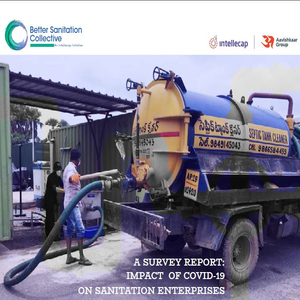
A SURVEY REPORT: IMPACT OF COVID-19 ON SANITATION ENTERPRISES
PUBLISHED: July, 2020
Over the last few months, the spread of COVID-19 pandemic has led countries across the globe to witness an unprecedented impact on healthcare systems in particular and economies as a whole. This modern age pandemic has caused a major economic slowdown with a loss of around $8.8 trillion, which is around 9.7% of the global GDP. Studies across the globe suggest that the impact of this pandemic has been felt across industries with the small and medium enterprises (SMEs) being the worst hit.
The story is no different in India, where the increasing numbers of COVID-19 cases have caused severe health and economic crisis. As most economic activities remained halted during lockdown, a lot of businesses in the MSME category faced the risk of extinction due to decreased demand for non-essential commodities, labour shortage, credit deficit and almost no working capital. Since the SMEs contribute to 29% of the GDP, and employ more than 11 crore people, it is imperative to study, and understand how they have been impacted and design measures to support them.
At Better Sanitation Collective – an initiative by Intellecap, we recognize the role of sanitation enterprises in the current scenario and the challenges they may have faced in being operational during the pandemic. Hence, to better understand the impact of COVID-19 pandemic on them and the ecosystem in which they function, we conducted a survey, and reached out to 200 enterprises. The survey primarily focused on capturing the impact of the pandemic on their business operations, their response to these challenges and additional support needed to tide over the ongoing crisis.
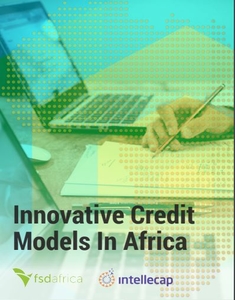
Innovative credit models in Africa – An FSD Africa and Intellecap Publication
PUBLISHED: July, 2020
Established in 2012 and supported by UK aid, FSD Africa is a specialist development agency working to build and strengthen financial markets across sub-Saharan Africa.
FSD Africa is incorporated as a non-profit company limited by guarantee in Kenya. It is funded by UK aid from the UK government. They work to reduce poverty through a ‘market systems development’ approach, which means we aim to address the structural, underlying causes of poverty by improving how financial market systems function.
As part of FSD Africa work in credit markets, they aim to contribute to a greater understanding of factors that inhibit the growth of credit markets in sub-Saharan Africa. FSD Africa partnered with Intellecap to undertake research on market innovations in retail credit markets.
The objective was to assess innovative models emerging in selected countries – South Africa, Nigeria, Kenya, Tanzania and Rwanda – and to identify the critical factors for success. The region continues to face a myriad of challenges across the spectrum of the lending value chain, which affect credit access. These include low-income levels, poor infrastructure, weak policy and a high cost of credit.
In the face of these challenges, innovative digital technologies and business models are emerging in an attempt to solve credit access challenges. The report identifies over 30 credit innovations that leverage technology, multiple data sources and partnerships to enhance access and delivery of financial services to underserved segments across the continent.
The insights generated through the research are intended to highlight market opportunities and challenges, and will be of value to policymakers, regulators, credit providers, financial sector analysts, as well as others interested in supporting credit market growth in the region.
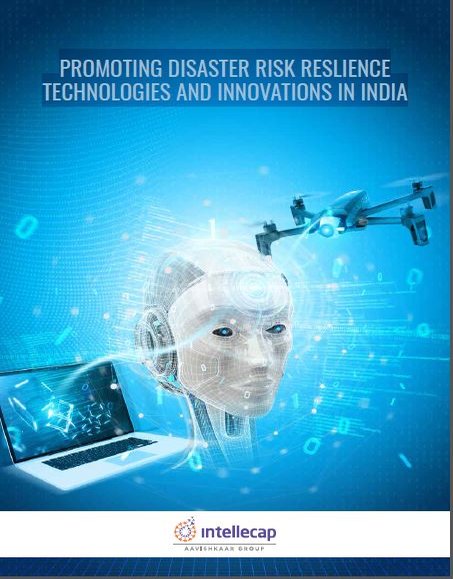
Promoting Disaster Risk Reslience Technologies And Innovations In India_All Stakeholders
PUBLISHED: June, 2020
The increased frequency and intensity of disaster risks in recent years has led to huge social and economic losses, both in India and around the world. India, being a climate-sensitive nation, with a large vulnerable population, unplanned physical infrastructure development, and poor institutional capacity is worse affected by disaster-related impacts.
It is extremely important to promote the application of innovations and technology for Disaster Risk Resilience (DRR) aimed at improving the adaptive capacity of communities and reducing losses due to disaster-related impacts. Considerable efforts are being taken towards enhancing the role of technology in reducing vulnerabilities of communities and ecosystems-at-risk, preventing risks, and building the resilience of critical infrastructure.
In India, the Government, along with the private sector, has been widely using technologies such as Geographic Information System (GIS), weather forecasting and predictive analytics, early warning systems and remote sensing to identify risks and improve response to disasters. However, the spread and availability of disruptive technologies (such as artificial intelligence, blockchain, internet of things etc.) across disaster management scenarios (pre, during and post) vary amongst developed and developing nations. It is evident that an increased implementation of advanced technology for DRR will create new and improved methods which might enable evidence-based policies. The Government of India (GoI) recognizes that investment in DRR requires evidence-based risk management methods and effective application during emergencies.
This study thus aims to; (a) map the landscape of technologies that can be used in the DRR space, (b) define the current ecosystem, (c) examine the challenges, and (d) provide suggestions for promoting DRR technologies and innovations in India. We have prepared two version – one for the innovators and other for stakeholders who need to support the sector in India.
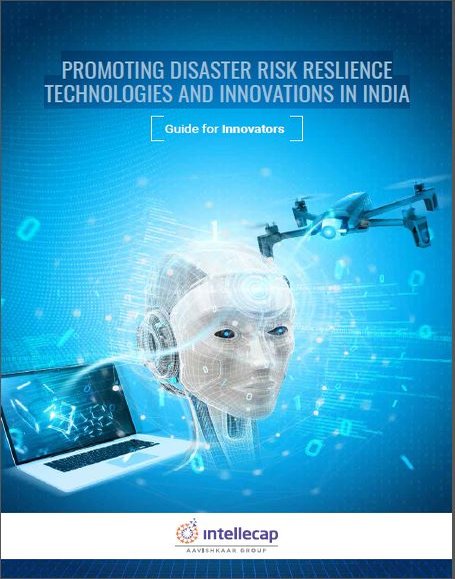
Promoting Disaster Risk Reslience Technologies And Innovations In India_ Guide for Innovators
PUBLISHED: June, 2020
The increased frequency and intensity of disaster risks in recent years has led to huge social and economic losses, both in India and around the world. India, being a climate-sensitive nation, with a large vulnerable population, unplanned physical infrastructure development, and poor institutional capacity is worse affected by disaster-related impacts.
It is extremely important to promote the application of innovations and technology for Disaster Risk Resilience (DRR) aimed at improving the adaptive capacity of communities and reducing losses due to disaster-related impacts. Considerable efforts are being taken towards enhancing the role of technology in reducing vulnerabilities of communities and ecosystems-at-risk, preventing risks, and building the resilience of critical infrastructure.
In India, the Government, along with the private sector, has been widely using technologies such as Geographic Information System (GIS), weather forecasting and predictive analytics, early warning systems and remote sensing to identify risks and improve response to disasters. However, the spread and availability of disruptive technologies (such as artificial intelligence, blockchain, internet of things etc.) across disaster management scenarios (pre, during and post) vary amongst developed and developing nations. It is evident that an increased implementation of advanced technology for DRR will create new and improved methods which might enable evidence-based policies. The Government of India (GoI) recognizes that investment in DRR requires evidence-based risk management methods and effective application during emergencies.
This study thus aims to; (a) map the landscape of technologies that can be used in the DRR space, (b) define the current ecosystem, (c) examine the challenges, and (d) provide suggestions for promoting DRR technologies and innovations in India. We have prepared two version – one for the innovators and other for stakeholders who need to support the sector in India.
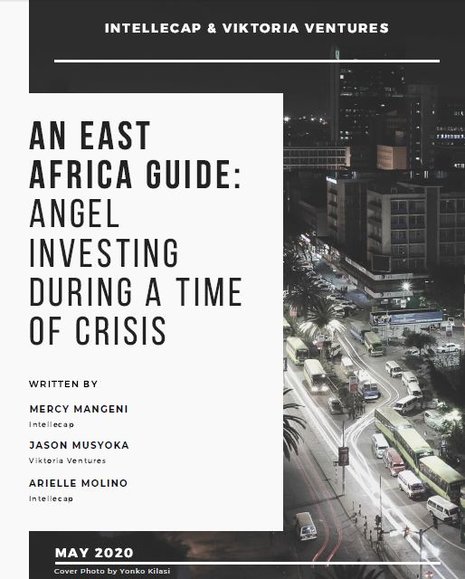
An East Africa Guide: Angel Investing During a Time of Crisis
PUBLISHED: May, 2020
There has been a lot of focus on how entrepreneurs can survive the Covid-19 pandemic:
InVhestia Africa had a webinar on how to navigate this period financially; Idris Bello has written a great article on survival tips for entrepreneurs; GS Capital had a webinar on start- up management; and 10X Entrepreneur has launched a Leadership Field Guide to help entrepreneurs navigate the Covid-19 crisis, just to mention a few.
Let’s be honest here: Entrepreneurs will need financing to get through this economic downturn. However, most of the investors that we’ve asked said that due diligence has been slowed either due to travel restrictions, their focus on supporting their existing portfolio of entrepreneurs, or those which already had term sheets in place. So where is this financing going to come from?
Our perspective for this article is the investor side of the conversation. What are angel investors thinking about during this global crisis: Is now the perfect opportunity to invest? Is it a time to hold on to your cash and hide it under the bed?It can make sense to halt making any investments all together – and focus on supporting the existing portfolio – given that most angels invest out of pocket. However, this could be an uncommon opportunity to make investments which could generate very good returns, as described in Jason Calacanis’s excellent recent article.
While keeping safe and holding back might seem like the obvious thing to do, some level of aggressiveness might be beneficial, especially now when there’s a real dearth in financing in the market. We’re not advocating for carelessness, but we know entrepreneurs genuinely need financing right now. So we’ve put together this guide for angel investing in East Africa during a time of crisis, to help provide some considerations and guidance for your investment thesis.
As Jason Calacanis says, “Fortunes are made in the down market and collected in the upmarket. Let’s get to work.”
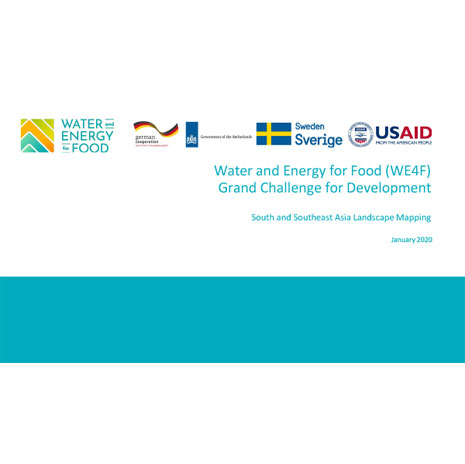
South and Southeast Asia Investment Landscape Mapping | Water and Energy for Food (WE4F) Grand Challenge for Development
PUBLISHED: April, 2020
The mission of Water and Energy for Food (WE4F) Grand Challenge for Development is to expand the sustainable scale of small and growing enterprises (SGEs) that impact the sectors of food and water, food and energy, or all three sectors at the nexus (food, water, energy). The objective is to increase the sustainability of agricultural food value chains and address environmental and climate resilience in developing countries and emerging markets – with a particular focus on the poor and women.To support these enterprises, WE4F intends to establish a Asia Regional Innovation Hub in Bangkok, Thailand, that seeks to provide innovative technical assistance and brokering operation to support and scale enterprises that operate at the WE4F nexus.
Intellecap assisted in the rapid operationalization of the Asia Regional Innovation Hub by carrying out a landscape analysis to identify 100 high potential enterprises working at the nexus across South and South East Asia. We profiled 35 investors and over 25 BSPs in South/South East Asia who the Hub staff can reach out to for supporting the enterprises. Intellecap also provided recommendations to the Hub on the potential role it could play in supporting investment brokering and providing technical assistance.
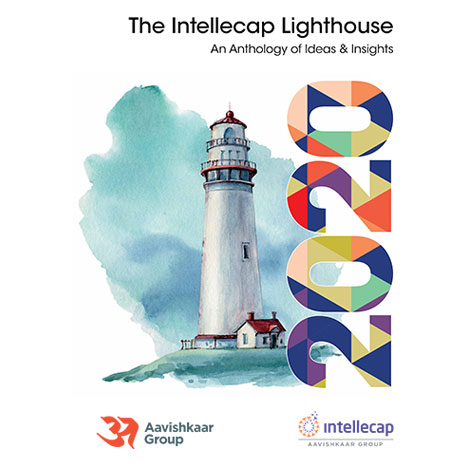
Intellecap Lighthouse – An anthology of thoughts & insights (2020)
PUBLISHED: April, 2020
The Intellecap Lighthouse is an anthology of various perspectives and insights from its thought leaders on topics that demand our attention today, and sector trends that will capture our imagination in the future.
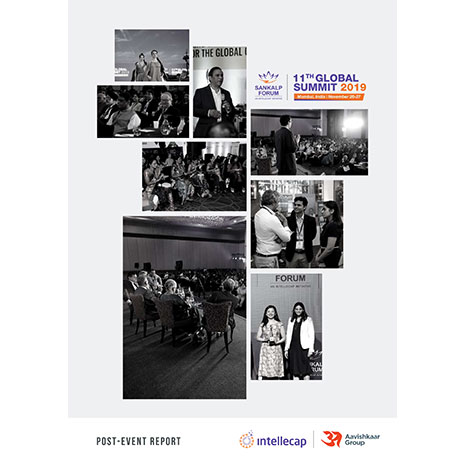
Post Event Report | 11th Sankalp Global Summit
PUBLISHED: April, 2020
Over the two days of Sankalp, we had discussed, debated, and collaborated through 45+ sessions that had been curated as panel discussions, stakeholder consultations, workshops, and masterclasses. We screened a documentary film, launched 2 books, hosted a poetry reading, a drum circle and exclusive dinner for women leaders at Sankalp. Sessions were curated around thematic areas on agriculture, gender, sanitation, financial inclusion, climate change and included cross-cutting areas of impact investing. Alongside this, we hosted a pioneering conversation around Building India’s Social Stock Exchange, along with an inspiring keynote from Sanjeev Sanyal, Principal Economic Advisor of the Government of India. With 1203 delegates, Sankalp has celebrated being a unique ecosystem convener across the incredible community of professionals who are working to resolve some world’s most pressing challenges. As you may all know, at the very core of Sankalp, we celebrate impact entrepreneurs and the spirit of innovation. To showcase the best and brightest innovations, we host one of the world’s most prestigious recognitions – the Sankalp Awards. After an extensive search, an exhaustive vetting process by investment teams, and finally, the opportunity to pitch to a grand jury, Intellecap awarded enterprises who have the potential of uplifting the ecosystem in their respective fields. Details of 2019’s Sankalp Award winners can be found in later sections of this report.
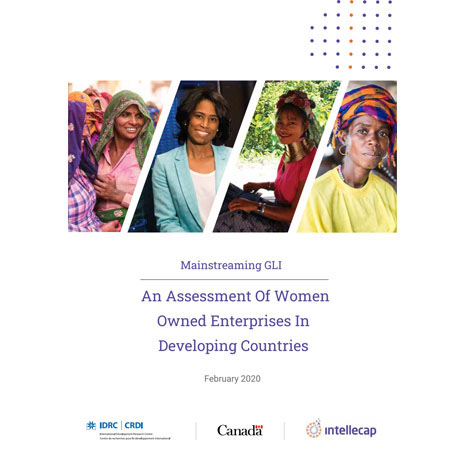
Mainstreaming GLI An Assessment of Women Owned Enterprises in Developing Countries
PUBLISHED: March, 2020
This report is part of a wider study that aims to unpack the contribution of Gender Lens Investing in women’s economic empowerment, and builds on the existing literature on the understanding of the finance gap for women-owned enterprises in developing countries. It is based on insights gathered from 200+ women entrepreneurs across Kenya, Rwanda, India and Indonesia.
While analysing the factors affecting access to finance for women entrepreneurs, the report touches upon its effect on their lives in terms of impact on their agency, bargaining power, ability to challenge patriarchal attitudes, and financial independence, through examples. The report posits a segmentation framework to bring out the differentiated characteristics, needs and challenges of women-owned businesses businesses.
The report concludes by building on the existing toolkits and guidance documents enabling GLI to put forth a framework of questions that can help financial institutions become more aware of their level of preparedness for targeting women entrepreneurs.
This study was carried out with the grant support from the International Development Research Centre (IDRC), Ottawa, Canada.
Reports & Policies
Our Impact Map

Sign up for our newsletter
© Copyright 2018 Intellecap Advisory Services Pvt. Ltd. - All Rights Reserved



